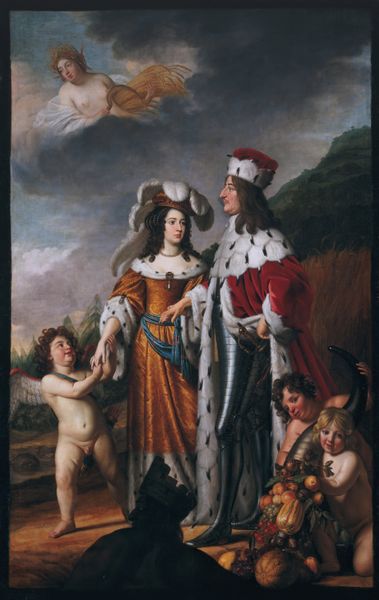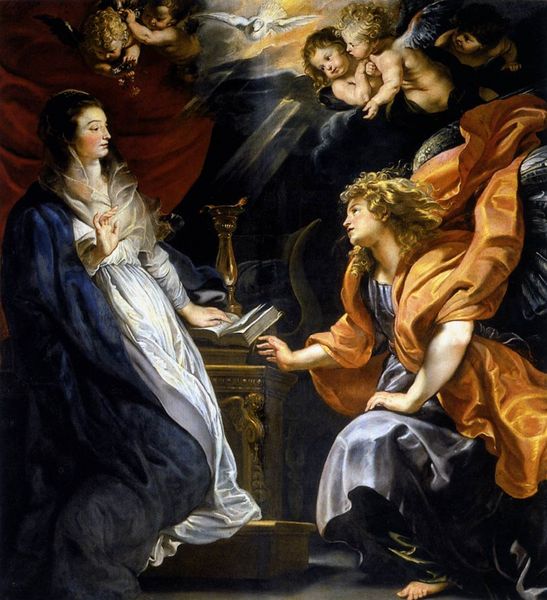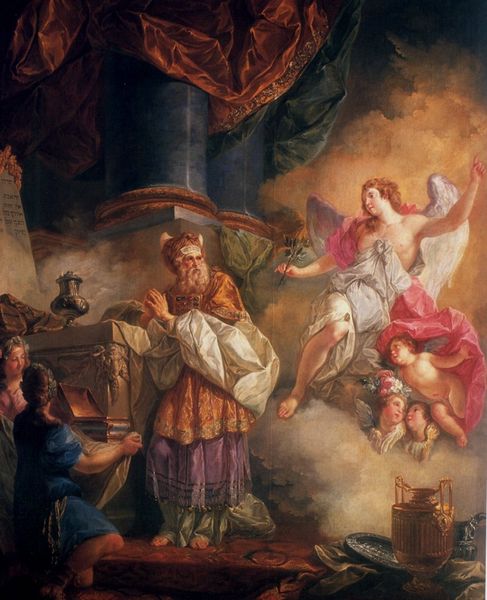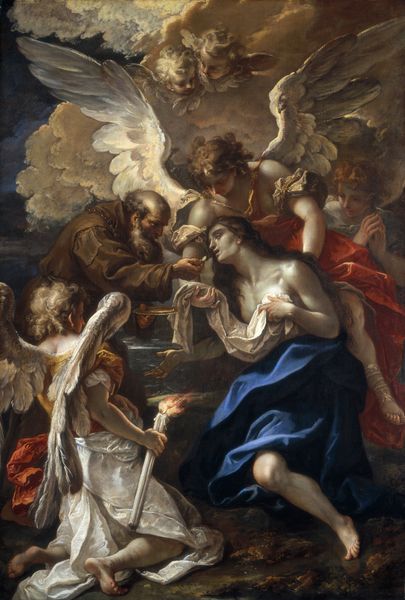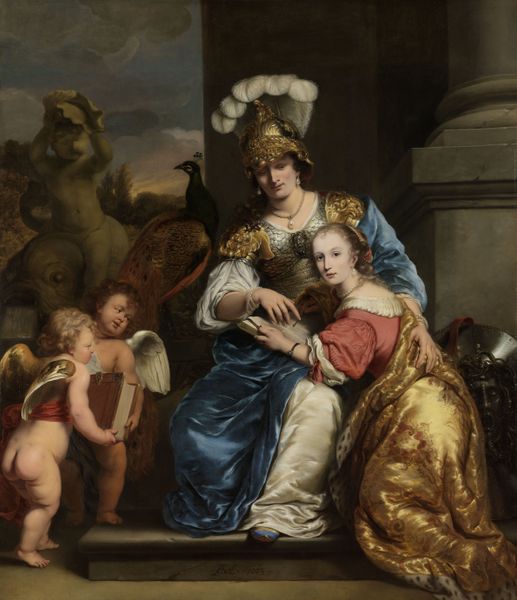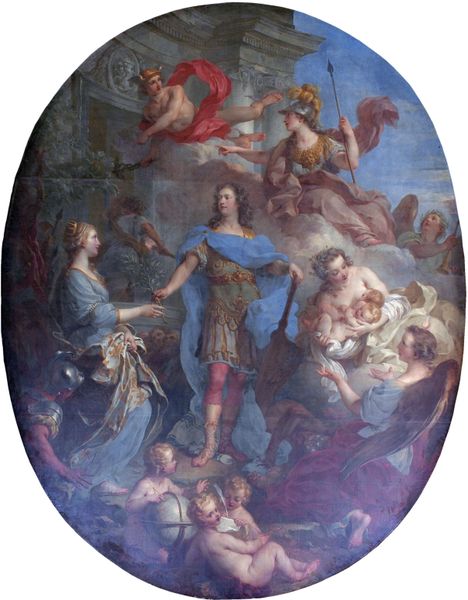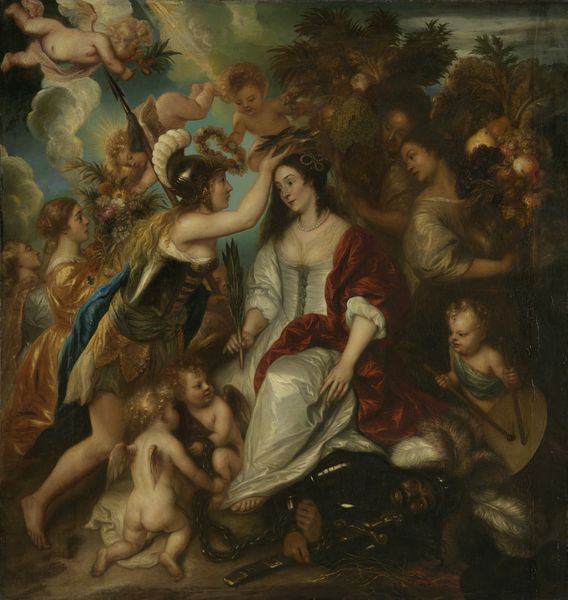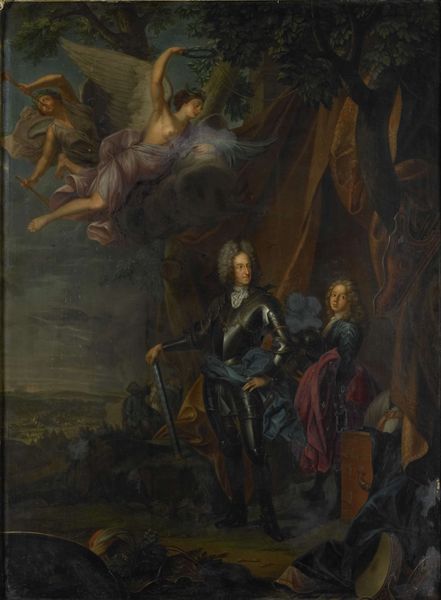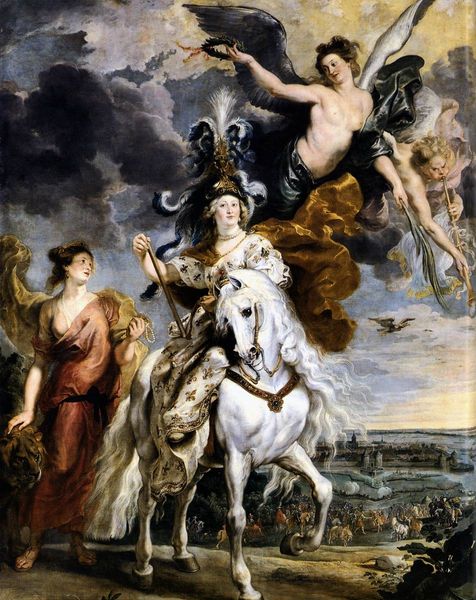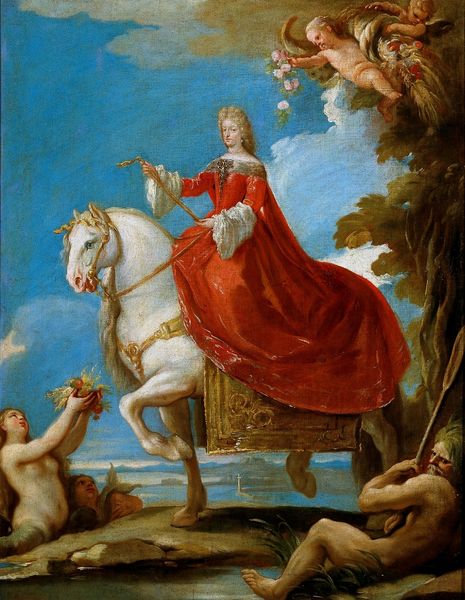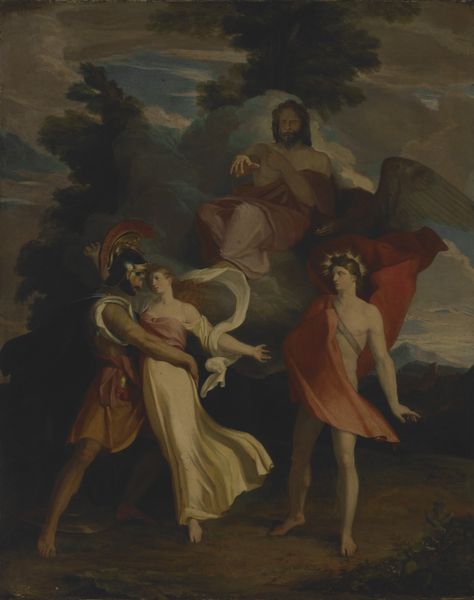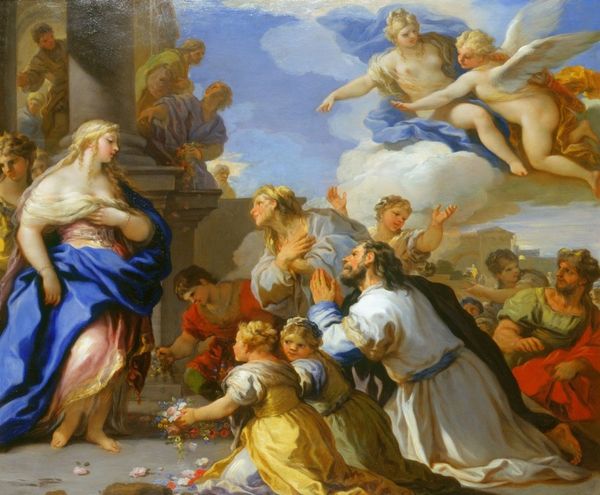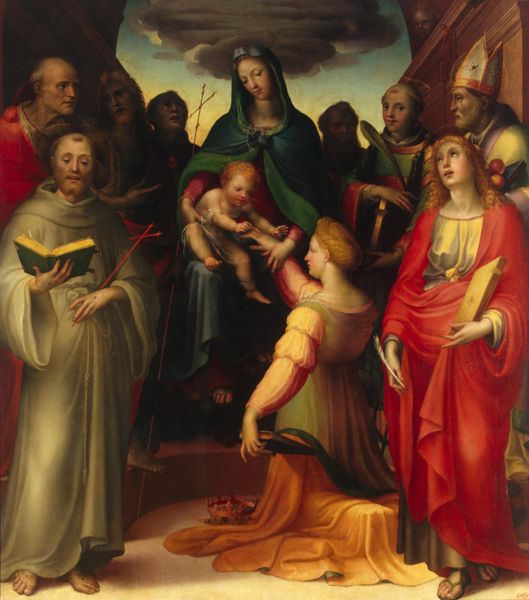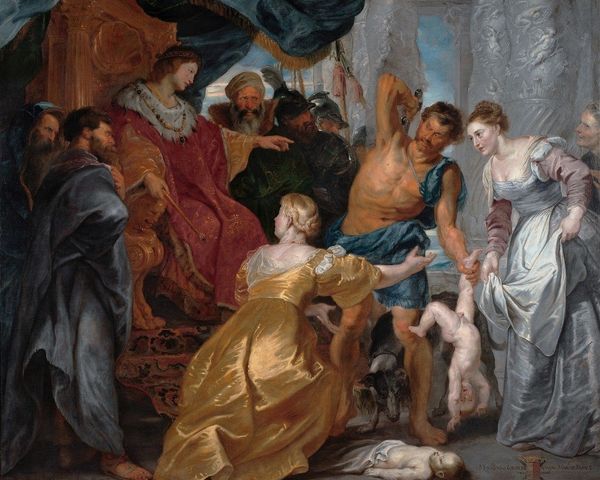
Part of the Triumphal Procession, Amalia and Her Daughters Watching the Triumph of Frederik Hendrik 1650
0:00
0:00
painting, oil-paint
#
portrait
#
allegory
#
narrative-art
#
baroque
#
dutch-golden-age
#
painting
#
oil-paint
#
oil painting
#
group-portraits
#
history-painting
#
portrait art
Copyright: Public domain
Gerard van Honthorst painted Amalia of Solms-Braunfels and her daughters, probably in the 1640s, to commemorate the military achievements of her husband, the Stadtholder Frederik Hendrik. The image constructs meaning through an elaborate set of visual codes. Amalia and her daughters are staged as spectators of a triumphal parade. While the Netherlands was a republic, the House of Orange had quasi-monarchical status and dynastic ambitions. Dutch artists often adopted allegory to represent the family in symbolic terms, alluding to the classical world. Here, Amalia sits beneath an arch as if she is a Roman empress. Van Honthorst was one of the most successful painters in the Dutch Golden Age, working for wealthy and aristocratic patrons. The painting demonstrates how powerful families used art to create a public image. To better understand this painting, one could research the history of the House of Orange, the conventions of Dutch portraiture, and the use of allegory in political imagery. Art like this reveals how elites seek to legitimize their social position.
Comments
No comments
Be the first to comment and join the conversation on the ultimate creative platform.
